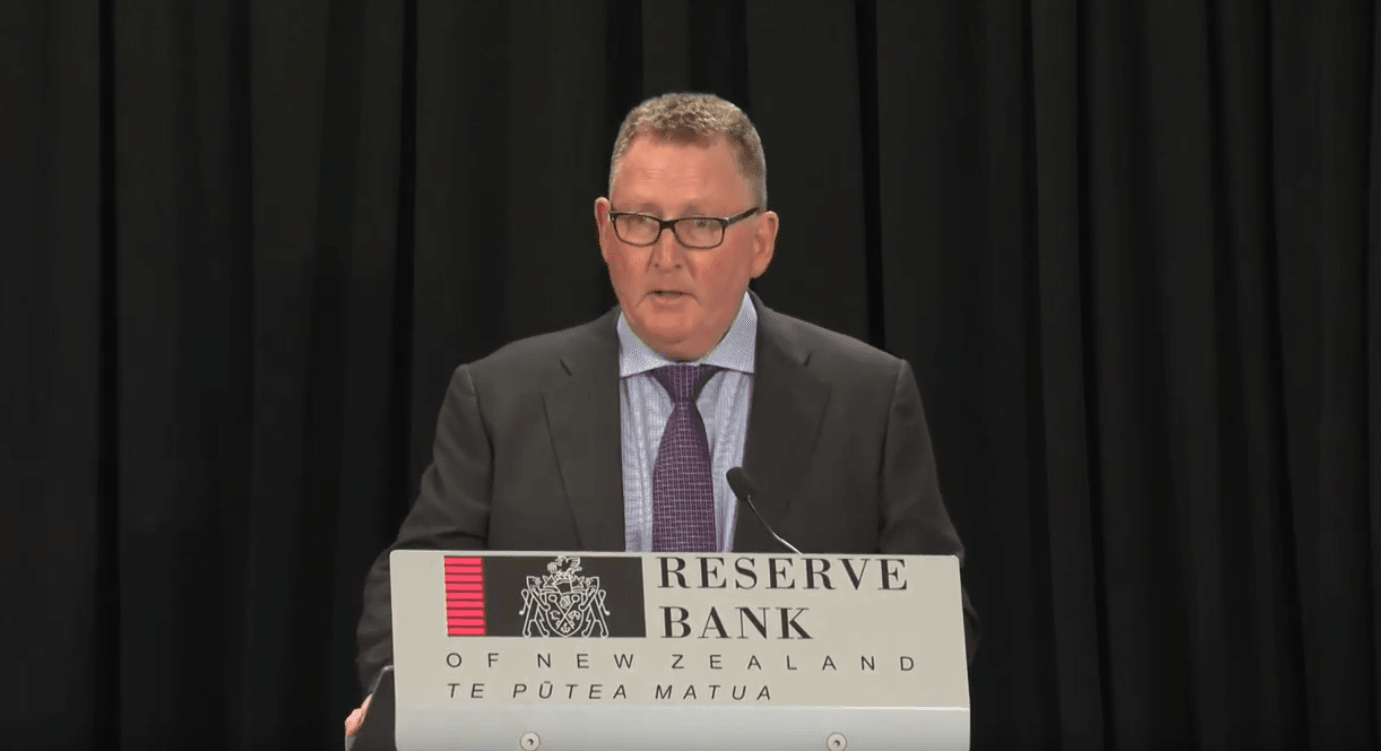
File image of RBNZ Governor Orr. Image © Pound Sterling Live, Still Courtesy of RBNZ.
The New Zealand Dollar jumped by almost a per cent after the Reserve Bank of New Zealand cut the cash rate by 50 basis points to 4.25%.
"The jump in NZD/USD suggests market participants thought the RBNZ's post‑meeting statement was hawkish," says Joseph Capurso, a foreign exchange strategist at Commonwealth Bank.
The market entered the meeting with a 25 basis point expectation that the central bank would cut by a bigger 75 basis points, meaning there was still an element of a 'hawkish' surprise as this outcome was avoided.
Against the U.S. Dollar, the Kiwi is 0.65% higher at 0.5872. The Pound to New Zealand Dollar exchange rate is 0.60% lower on the day at 2.1417, and the Euro to New Zealand Dollar rate is lower by a similar margin at 1.7853.
New forecasts from the RBNZ showed it expects a high chance of a 50bp cut at its next meeting in February.
In the press conference, Governor Adrian Orr did not go out of his way to temper expectations for next year, implying the door is open for a 50bp cut in February.
"We expect NZD/USD to reverse today’s gains in coming days," says Capurso.
However, Volkmar Baur, an FX Analyst at Commerzbank, says two points in the RBNZ's forecasts made the market sit up and take notice.
Firstly, the RBNZ expects an average key interest rate of 3.83% in Q1 of next year in its forecasts. "This would imply only a 40 basis point move in February and thus indirectly signals that the risk is seen as being more in the direction of a smaller interest rate move," explains Baur.
Another point is that the RBNZ sees inflation rising again in the second half of the year.
"Particularly when coupled with the expected improvement in the economy, there is thus a risk that the RBNZ will do less than the market is currently still expecting," says Baur.
These developments could mean the New Zealand Dollar has seen 'peak negativity' from interest rate expectations.
"From here we expect the RBNZ will slow the pace of easing to 25bp moves in 2025," says Nick Tuffley, Chief Economist at Auckland Savings Bank (ASB).
